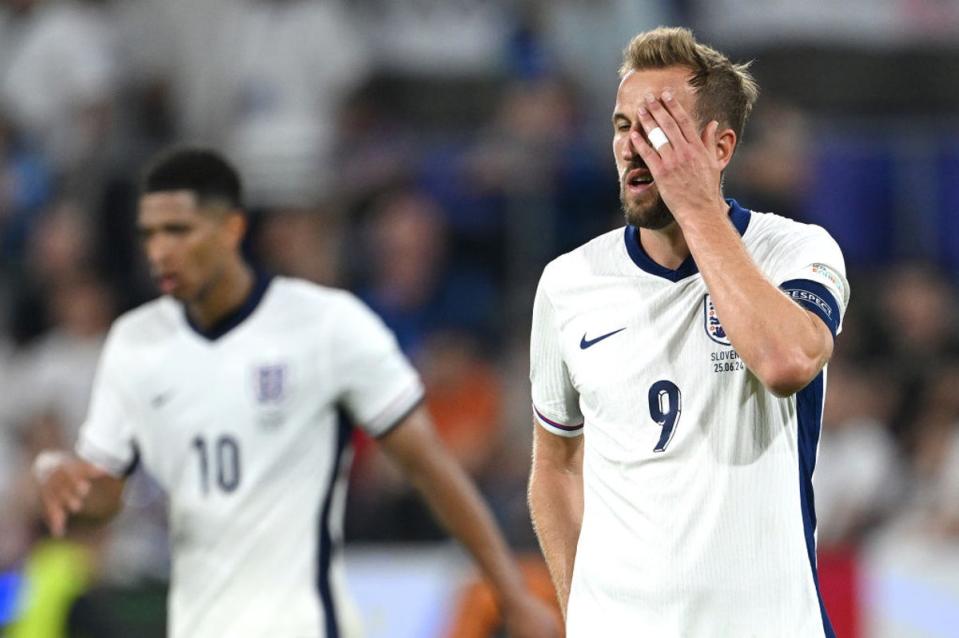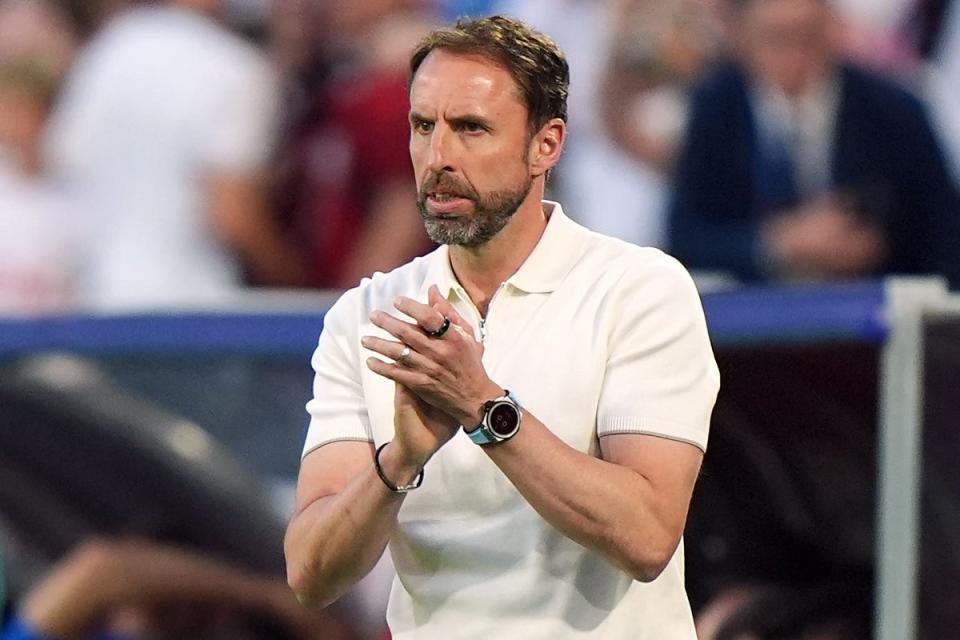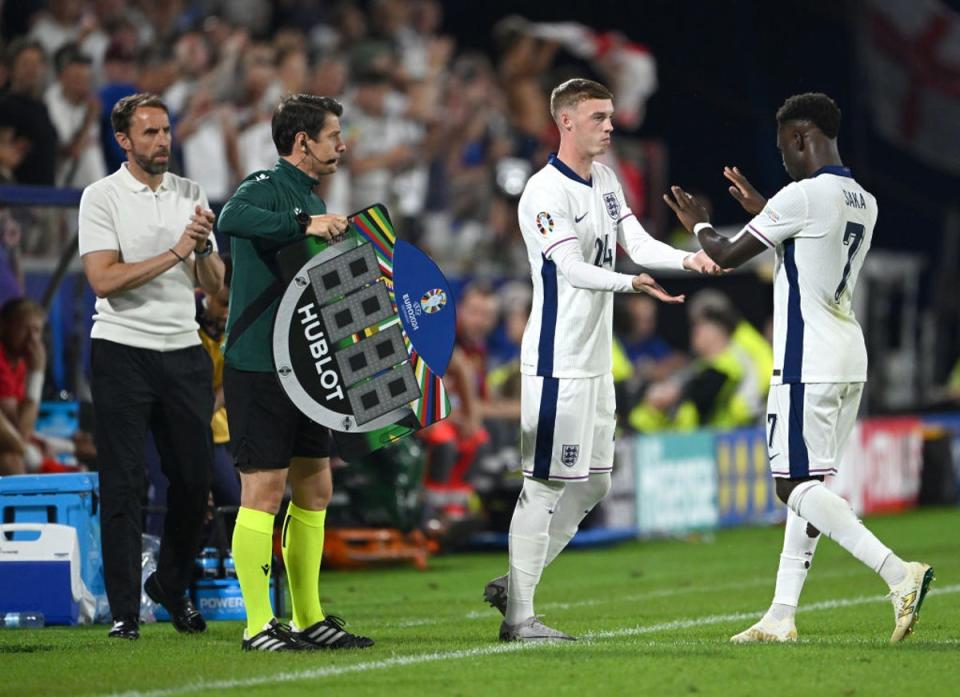Forget the group stage, England must follow this example to rescue Euro 2024 campaign
As Gareth Southgate got his England players back into the dressing room, after the boos and the plastic pint cups thrown at him in Cologne, he tried to get his squad to ignore any negativity. The message, despite a dismal 0-0 draw against Slovenia, was England played better. They’re through to the last 16 while topping the group. Southgate stated England’s performance was “an improvement”.
Many will consider that highly open to debate, but the crucial point for Southgate is that it’s clear in the players’ minds. It engenders the belief they can grow into this tournament, that all of this “environment” – as Southgate referred to the oppressive noise around England – can be forgotten.
That’s exactly what happened with one of the most recent champions in the Euros, the Portuguese side of 2016. They didn’t even claim the win that England did in their group stage, only squeaking through in third place with three draws.
That Portugal can now be the grand example for Southgate. It would carry an extra resonance for the manager, given they have been a squad he has rigorously researched and used as an example before. When Southgate first came into the job, he and his staff felt it worth studying all of the recent major tournament wins and every little decision they made, to gather a dataset for what works best in the heat of competition. That went right down to the timing of substitutions. This “bible” has only been added to since, as three tournaments have gone by without England winning.

The team’s previous progress has meant Southgate hasn’t had to adhere to it as rigorously, but it has offered reassurance and some guidance when he’s had to make big decisions. Portugal 2016 and France 2018 were especially illustrative for Euro 2020.
That has offered England strength, but may also point to a weakness. One of the most consistent criticisms of Southgate has been that he is too rigorous a manager, and too guided by preset parameters. "Managing by handbook" has indeed been the line.
Some in other countries even dismiss it as a kind of “facsimile coaching”, as if he is replicating bigger moves but hasn’t got the appreciation for fine details.

This has arguably been visible in his greatest failings. One of those is the manner in which England retreat in big games, and it is highly plausible this is because he doesn’t necessarily have the “feel” for how such a contest is going. Southgate is certainly no Carlo Ancelotti in that regard. Another line is that he can’t “smell” the game, which is where planned substitutions almost become a crutch.
By the same token, it is arguable this is why there have been so few changes to a team that isn’t working properly. His only switch to the starting line-up so far has been that one position in central midfield beside Declan Rice, even though England obviously have problems in so many other areas.
Some of those problems demanded confrontation by the closing minutes of the Slovenia game, despite Kobbie Mainoo finally imposing some order. Southgate at last brought on Cole Palmer, which was one of his decisions that did bring a cheer, before introducing Anthony Gordon.

There was some effect. England produced their best move of the tournament so far with one quick interchange between Mainoo and Harry Kane that released Palmer. That was a sign of what is possible.
This is also maybe how Southgate gradually works out his team. Circumstances might force him into it.
Mainoo has certainly offered the manager more to think about, perhaps warding him away from more drastic suggestions like going back to the three-man backline of the 2018 World Cup. There is certainly a logic to playing Bukayo Saka at left-back, however, if Luke Shaw isn’t yet fit.
There is one important point to make with this, though. Southgate can now discuss these options with a touch more freedom. Regardless of even finishing top of the group, the very fact a new round starts changes the mood. There’s a new release. There’s a sense anything is possible now, rather than being restrained by the rigours of the group. It all comes down to single games every time.
Knockout football is different, too. As Portugal’s Fernando Santos would say to Southgate, it is about getting through it and getting by on individual moments. England have enough players that can produce them. They just haven’t come together so far.
That is one significant difference between that Portugal and this England. The Euro 2016 champions scored more goals in one group game than Southgate’s did in the entire opening stage. They also conceded more, too, mind. England’s defence is so far functioning.
Southgate still has to find a team that works on top of it. It just doesn’t necessarily have to work in the way expected.

 Yahoo Sport
Yahoo Sport 



































































